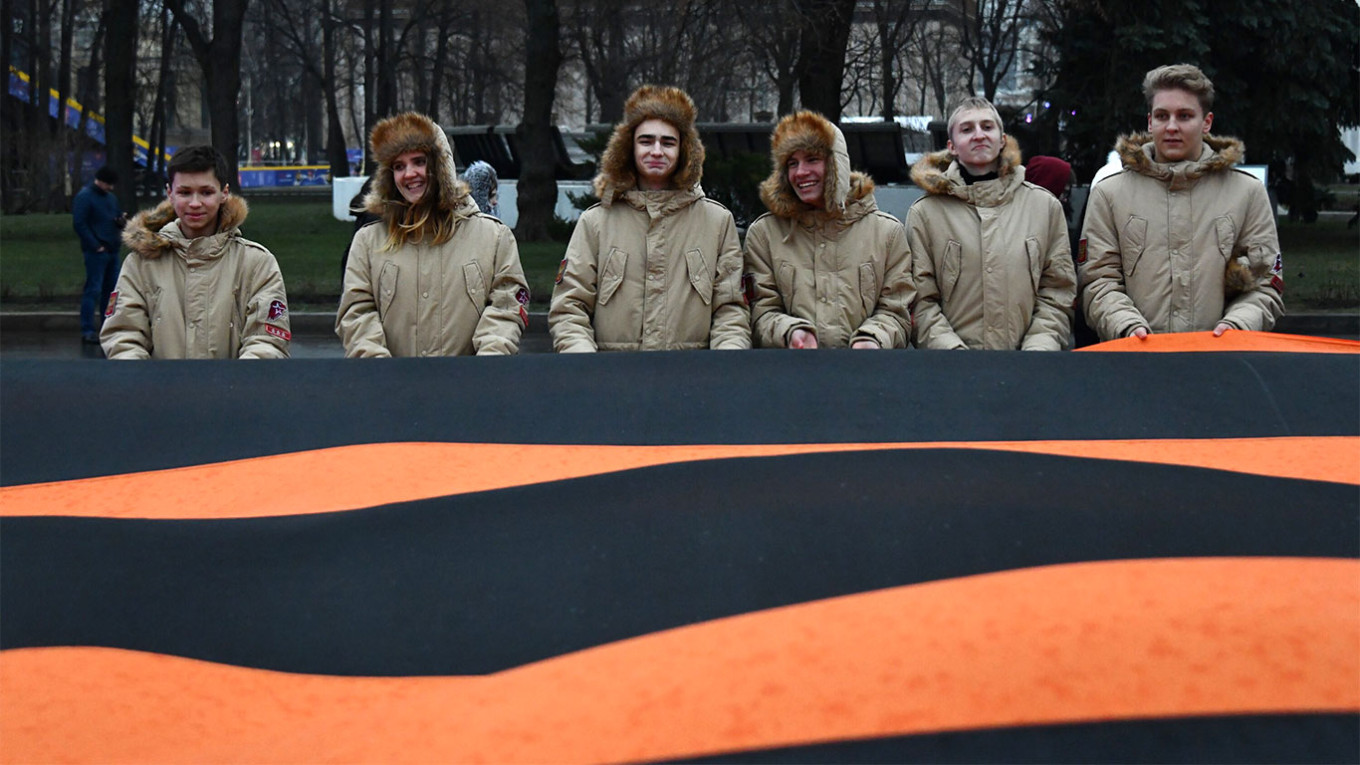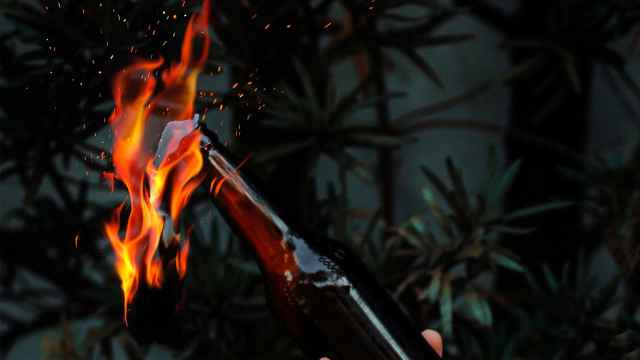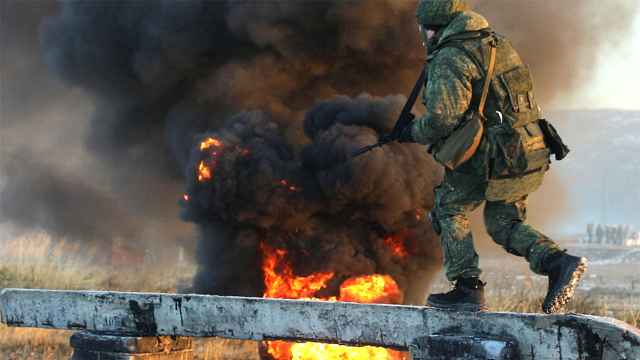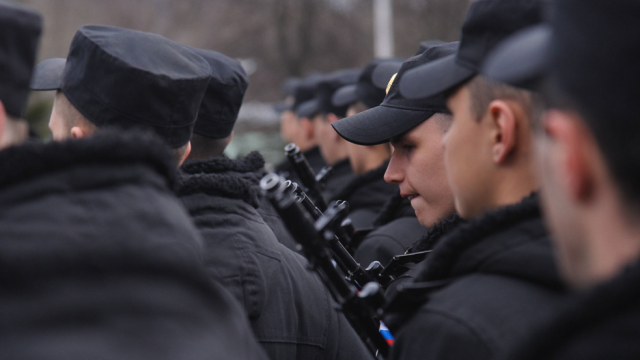Russian President Vladimir Putin on Thursday signed a law making it a criminal offense to desecrate the ribbon of St. George, the black and orange military pattern frequently used for commemoration of the Soviet victory in World War II.
The new law designates the ribbon as one of the official symbols of Russia’s military glory that can be used only during events “dedicated to notable dates in Russia” or “aimed at patriotic and morally-spiritual education of Russian citizens.”
The new designation means that desecration of the ribbon is now punishable under Russia’s “rehabilitation of Nazism” law, which stipulates fines of up to five million rubles ($68,450), five years of compulsory labor, or five years’ imprisonment for those who don't obey.
Individuals will also face punishment for acts of desecration committed online and as part of a group.
Though the law doesn’t specify exactly what constitutes “desecration,” one of its authors, State Duma Deputy Olga Zanko, said in April that members of the public wouldn’t be prosecuted for “wearing the ribbon of St. George on a purse.”
“You are putting St. George’s ribbon [on your purse] because you are proud of it and respect the memory of your ancestors,” Vedomosti quoted Zanko as saying when the law was introduced. “But if you publicly burn the ribbon, then that will be punished,” she added.
A Message from The Moscow Times:
Dear readers,
We are facing unprecedented challenges. Russia's Prosecutor General's Office has designated The Moscow Times as an "undesirable" organization, criminalizing our work and putting our staff at risk of prosecution. This follows our earlier unjust labeling as a "foreign agent."
These actions are direct attempts to silence independent journalism in Russia. The authorities claim our work "discredits the decisions of the Russian leadership." We see things differently: we strive to provide accurate, unbiased reporting on Russia.
We, the journalists of The Moscow Times, refuse to be silenced. But to continue our work, we need your help.
Your support, no matter how small, makes a world of difference. If you can, please support us monthly starting from just $2. It's quick to set up, and every contribution makes a significant impact.
By supporting The Moscow Times, you're defending open, independent journalism in the face of repression. Thank you for standing with us.
Remind me later.






